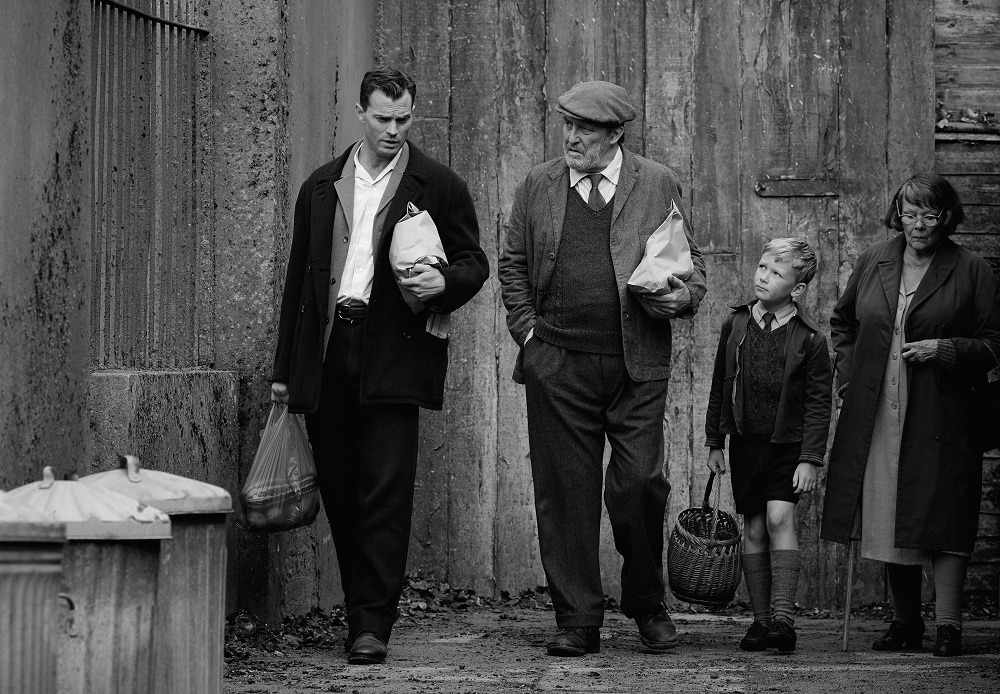Belfast

Jamie Dornan, Ciarán Hinds, Jude Hill, and Judi Dench star in BELFAST. (Photo: Focus Features)
The contemporary beauty of Northern Ireland’s capital city conceals a violent past that left residual scars on close-knit families and neighborhoods.
That contrast is crafted with bittersweet affection in Belfast, an evocative if uneven small-scale drama with autobiographical roots from native son Kenneth Branagh.
The opening shots of present-day Belfast in glorious color are suitable for a chamber of commerce promotional video. Then we transition abruptly into black-and-white and dive into those same streets in the late 1960s, during the onset of the “troubles.”
The film immerses us into a blue-collar milieu, and specifically a house occupied by precocious and mischievous preteen Buddy (Jude Hill), his father (Jamie Dornan) who works in construction, his mother (Caitriona Balfe), and his older brother (Lewis McAskie).
Buddy spends most days either playing outside with his classmates or visiting his doting grandparents (Ciaran Hinds and Judi Dench) who live nearby.
As fighting between Catholic and Protestant factions comes closer to their door, the family tries to maintain a sense of normalcy to shield Buddy from the chaos, while he finds an escape through the creativity of movies and stage plays at the local theater.
Meanwhile, his parents begin thinking about uprooting the family and relocating overseas for their safety and a fresh start. “There’s a whole world out there,” Buddy’s dad explains. “We can give these children a better chance than we ever had.”
Branagh (Murder on the Orient Express) again proves his versatility as a filmmaker with this visually striking tribute to his hometown. At its core, this is a coming-of-age saga seen through Buddy’s eyes, and Hill’s expressive performance — accompanied by a thick Irish brogue — is endearing as he essentially plays the filmmaker in his younger years,
Branagh’s screenplay finds moments of playful poignancy in its portrait of sociopolitical strife, in which people tend to be defined only by affiliation with one side or another. In today’s world, such division resonates beyond chronological or geographic boundaries.
As it escalates in intensity, the film’s even-handed portrayal of the turmoil and resulting emigration is more direct with its criticism of British government indifference at the time.
Despite some awkward tonal shifts, Belfast overflows with heartfelt sincerity, conveying both a nostalgic charm and a sense of bittersweet elegy toward a bygone era that’s crowd-pleasing if not exactly hard-hitting.
Rated PG-13, 97 minutes.